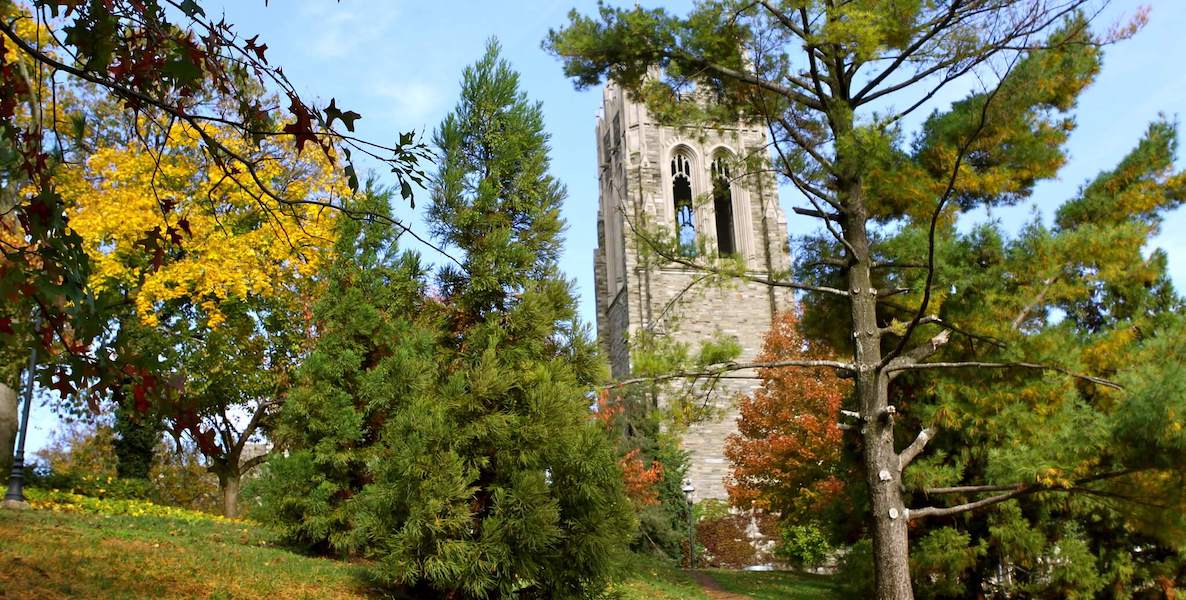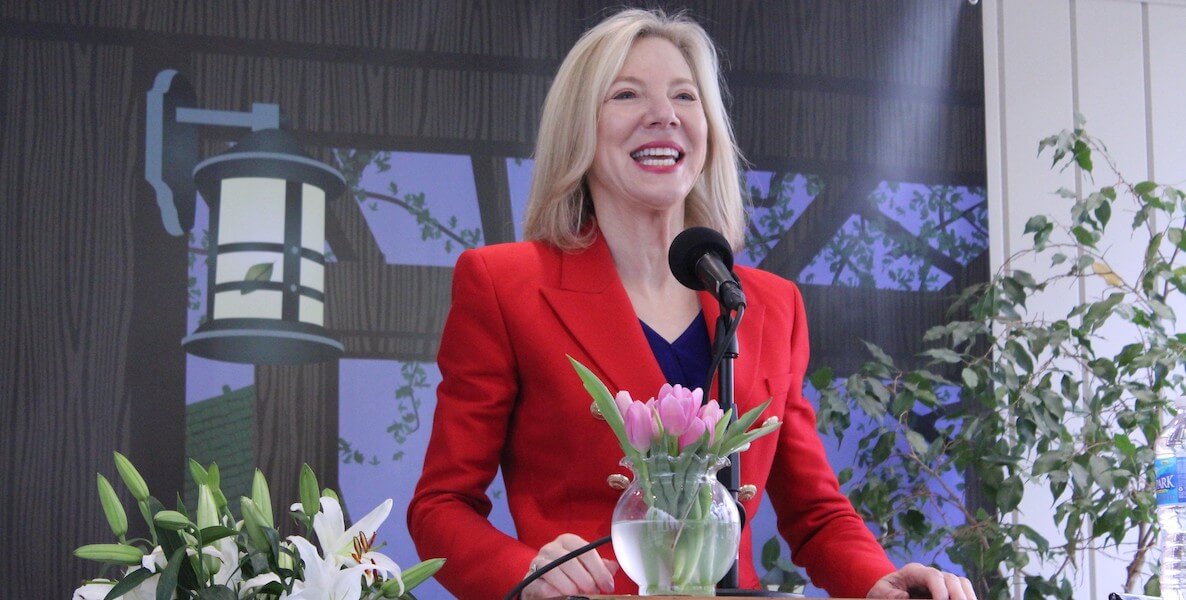Milton Friedman wrote that “[i]n order for men to advocate anything, they must in the first place be able to earn a living.”
According to the late, great free markets economist, we cannot have a society with personal freedoms but not economic freedoms. When the state allows free speech but controls all the jobs, it does not take long for dissenters from state orthodoxy to find themselves out of work. They are silenced not by traditional “censorship,” but by the indirect punishment of being made destitute.
In America, we face a new twist on this old problem. The state neither censors us nor controls most employment. But what happens when an increasingly large group of corporations, nonprofits, and other employers all subscribe to the same radical worldview—or cower to those who do? What happens when they use their power to fire anyone who speaks against certain established dogmas?
Today’s “cancel culture” is not the exact socialism that Friedman feared, but it is something almost as harmful to those who deny the received truths of the woke establishment.
Cancel culture is hard to define, but that is generally what we label this state of affairs, and though it is wildly unpopular across demographics and age groups, it is increasingly a trend for private citizens expressing dissent (or even being perceived to).
Trouble in the Twittersphere
One such scenario is now playing out at St. Joseph’s University, a Jesuit institution that straddles a quiet corner of Philadelphia’s western edge and Lower Merion township. Gregory Manco has been an assistant professor of math at St. Joe’s since 2005. He also is the volunteer assistant baseball coach.
The South Jersey native has had his contract renewed by the school every year for 15 years. There was nothing controversial about Manco until an anonymous online group announced that Manco did not conform to prevailing left-wing opinions—and began a pressure campaign to eliminate his job.
Around 1pm on Friday, February 19, Manco was tipped off by a former student that screenshots of tweets from his private account were circulating on Twitter along with accusations of racism. Manco’s account, @SouthJerzGiants, is anonymous and displayed no affiliation with St. Joseph’s University, but the woke online group soon doxxed him.
Universities are meant to be places where ideas can be developed and exchanged, but here we find an esteemed professor under investigation for expression that is not only inoffensive but was also made anonymously and outside the classroom.
The tweets do not contain anything racist. In them, Manco expressed opposition to reparations for slavery and to critical race theory “bias training” in workplaces, two positions that fit comfortably in American mainstream opinion. Nevertheless, within an hour of the complaint, Manco heard from the head of the math department. By the close of business that day, Manco was placed on paid leave indefinitely, pending an investigation.
In an email from the school’s chief human resources officer, Manco was told that “the University received several complaints regarding online postings that were allegedly made by you and are of a biased or discriminatory nature.”
The tone of the email should trouble anyone interested in fairness: Within hours, and without even talking to Manco, the university concluded that statements opposing mandatory critical race theory, even those made online without citing one’s employer, “are biased or discriminatory.” The only question the St. Joe’s administration had left to investigate was whether the tweets “allegedly made” by Manco were in fact made by him.
Manco does not deny that they are his words, but a look at those tweets shows nothing racist, biased, or discriminatory. After the fact, Manco told me that the university said several anonymous bias complaints were filed against him from people claiming to be his students. If so, he says, it would be the first time any such thing has been alleged in all his years of teaching—and he has student evaluations and performance evaluations to prove it.
Did St. Joe’s overstep its bounds?
Universities are meant to be places where ideas can be developed and exchanged, but here we find an esteemed professor under investigation for expression that is not only inoffensive but was also made anonymously and outside the classroom.
St. Joe’s seems to recognize the ancient freedoms of thought and expression in their faculty handbook, which holds that when faculty “speak or write as citizens, they should be free from institutional censorship or discipline.” Does St. Joe’s still stand by its own faculty handbook?
Noting that their words could reflect on their profession or on the school, the handbook goes on to say that “faculty should at all times be accurate, should exercise appropriate restraint, should show respect for the opinions of others, should refrain from giving any expression that they are institutional spokespersons, and should make every effort to indicate that they are not speaking for the institution.”
Manco followed all of these guidelines. No one thought he was tweeting on behalf of the school—no one even knew it was his account until a Twitter user informed on him. His posts were respectful, civil, and nuanced; the only problem was that the opinions behind them, though within the American mainstream, are no longer allowed to be stated publicly at most American universities.
I remember a school with open-minded students and tolerant faculty, a place where ideas could be shared without fear of repercussion. People might have disagreed, but no one would have shut down the conversation.
Essentially, the story played out in familiar order: someone on Twitter got mad, and now a man’s career hangs in the balance.
The response of St. Joe’s would be bad enough without a glaring inconsistency of how they treat much more inflammatory left-wing statements by professors.
After Donald Trump’s election in 2016, St. Joe’s associate professor David Parry participated in a forum at the school entitled “Making Sense of the Presidential Election,” where Parry ranted: “I am not sympathetic to the white voters who make over $50,000 a year and said we are going to vote for Trump… I do not believe that you have to open your heart to them. If you are a person of color, if you are a woman, you do not have to open your heart to them… it is okay to deal with that how you want.”
Parry said of Trump’s election “this is violence” and that “people are going to die because of what happened.”
These comments led to a minor firestorm, with stories at Campus Reform and Fox News. The university’s reaction was to support Parry. In a statement, school officials said that “‘Saint Joseph’s University, as an institution of higher education, is fundamentally committed to free speech and the exchange of ideas.” They went on to explain “No one, including Dr. Parry, spoke on behalf of the University at the forum, which was not part of any class.”
In concluding the statement (which has since been deleted from the school’s website but was quoted in several contemporaneous news stories), the St. Joe’s administration states that “fostering a safe learning environment is one of the University’s primary obligations. Freedom of expression is integral to this effort… this always has been and will remain a central principle at Saint Joseph’s University.”
The student government echoed the university administrators’ sentiment at the time, reaffirming their “dedication to a respectful, unitive, and free exchange of perspectives.”
Something has changed in the core principles of St. Joe’s in the past few years.
Gregory Manco neither spoke at a university event nor uttered nearly as inflammatory or hyperbolic comments.
“Academic freedom is under threat everywhere”
As a loyal alumnus (B.A., 2001) this story pains me. I remember a school with open-minded students and tolerant faculty, a place where ideas could be shared without fear of repercussion. I would not have been afraid to speak against reparations or “bias training” in the same way Manco did in his tweets, on campus or off. People might have disagreed, but no one would have shut down the conversation.
I chose to attend a Jesuit university because of the order’s tradition of learning, independence, and intellectual rigor. Since 2015, St. Joe’s has no longer had a Jesuit as president, and very few remain on the faculty. Maybe what made the school distinct has become less important than fitting in with the latest passing trend in progressive dogma, an intellectual blandness that makes every school the same, repressive and mediocre.
Manco told me that he loved St. Joe’s, but that “there is an unhealthy atmosphere at the university right now.” The school’s actions this month prove the point.
Academic freedom is under threat everywhere, but Manco’s case is a new low for intellectual discourse in the Philadelphia region. Instead of kneeling to anonymous radicals online, St. Joe’s should listen to their students, their alumni, and their own principles, and cease this baseless harassment of a respected professor who has done nothing wrong.
Kyle Sammin is a senior contributor to The Federalist, co-host of the Conservative Minds podcast, and resident of Montgomery County. He writes regularly for Broad + Liberty. Follow him @KyleSammin





